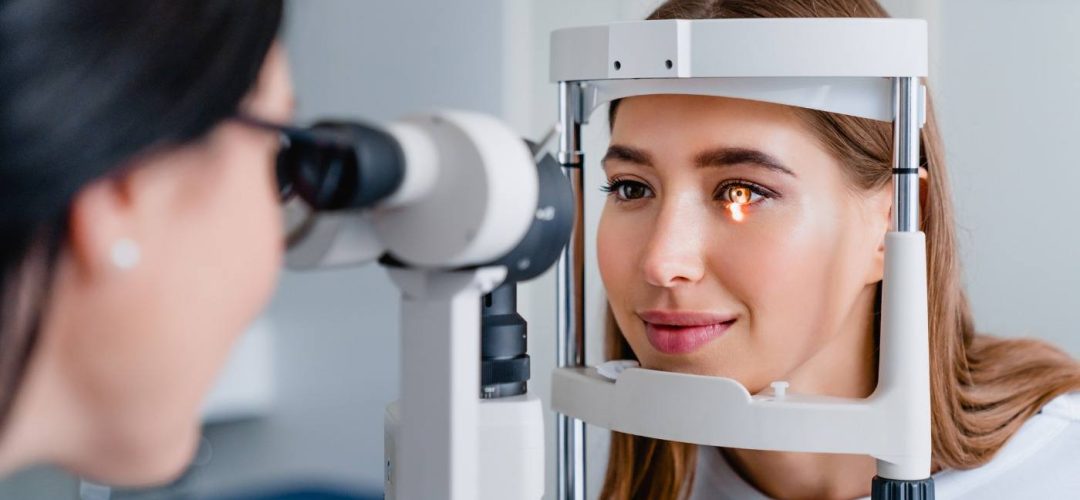Ophthalmology

The Ophthalmology course provides comprehensive knowledge and practical skills in the field of eye care and visual health. Participants will delve into the anatomy and physiology of the eye, diagnostic techniques, and treatment modalities for various ocular conditions. The course covers topics such as refractive errors, ocular diseases, surgical procedures, and medical interventions. Students will gain proficiency in performing eye examinations, using specialized equipment, and interpreting diagnostic tests. Additionally, the course emphasizes the importance of patient communication, ethics, and cultural sensitivity in providing quality eye care. By the end of the program, participants will be equipped to pursue careers as skilled ophthalmic professionals and contribute to the well-being of individuals’ visual health.
Our Ophthalmology qualifications have been designed in collaboration with colleges, higher education institutions, and sector skills councils. They offer a pathway for individuals to progress to university degrees and cover Diploma Level- 3 to 7.
These qualifications provide the flexibility for learners to choose from a variety of optional units at each level. This allows them to specialize in specific areas while also gaining the essential core knowledge necessary for all managers or individuals.
- Lay a strong foundation in ophthalmology principles, theories, and fundamental concepts.
- Acquire a comprehensive grasp of ocular diseases, diagnostic techniques, treatment modalities, and surgical interventions.
- Develop proficiency in applying medical knowledge and technical skills to analyze, diagnose, and address ophthalmological challenges.
- Gain hands-on experience through practical clinical cases and real-world simulations in ophthalmic practice.
- Understand the principles of ophthalmic practice management, including patient care coordination, treatment planning, and ethical considerations.
- Acquire skills in ophthalmic surgical techniques, including precision procedures, patient safety, and post-operative care.
- Explore the intricacies of diagnostic imaging, visual field testing, and ophthalmic instrumentation within the medical practice.
- Cultivate critical thinking, problem-solving, and analytical abilities to effectively manage and overcome ophthalmological complexities.
- Enhance collaboration, communication, and patient interaction skills through clinical teamwork and interactive case studies.
- Develop research competency and the ability to apply knowledge for conducting independent studies in specialized areas of ophthalmology.
Upon successful completion of the Ophthalmology program, individuals will encounter a diverse array of career opportunities within various sectors dedicated to eye care and visual health. Potential professional pathways encompass ophthalmology specialist, eye care technologist, ophthalmic technologist, vision health technician, visual diagnostics specialist, ophthalmology consultant, visual health researcher, ophthalmology educator, and ocular equipment specialist.
Graduates can explore employment options in eye hospitals, ophthalmic clinics, vision centers, research institutes, private practices, and healthcare institutions. They might also opt to pursue advanced studies in ophthalmology, optometry, or related fields at the postgraduate level, thereby augmenting their expertise and prospects within the realm of visual health.
Course Details

Course Overview:
The Level 7- Post Graduate Diploma in Ophthalmology is a prestigious program tailored for experienced ophthalmic professionals and scholars seeking to attain the highest level of expertise in the field. This diploma offers an advanced exploration of complex ocular conditions, cutting-edge treatments, and innovative research methodologies. Students will delve into the forefront of ophthalmology, honing clinical skills, surgical techniques, and leadership abilities essential for shaping the future of eye care. The program aims to produce graduates who can lead in clinical practice, research advancements, and influence ophthalmic policy.
Equivalences:
The Level 7- Post Graduate Diploma in Ophthalmology is equivalent to a Master’s degree and holds recognition from esteemed educational and professional institutions. This qualification is ideal for those aspiring to excel as ophthalmology specialists, surgeons, consultants, researchers, or educators at an advanced level.
Course Contents:
The course content of the Level 7- Post Graduate Diploma in Ophthalmology typically covers a range of advanced topics. Here are the topics covered:
- Advanced Retinal Surgery and Vitreoretinal Diseases
- Corneal Transplantation and Refractive Surgery
- Pediatric Ophthalmology and Amblyopia Management
- Oculoplastic Surgery and Orbital Disorders
- Neuro-Ophthalmology and Neurological Manifestations
- Uveitis and Inflammatory Eye Diseases
- Glaucoma Surgical Techniques and Minimally Invasive Procedures
- Ocular Oncology and Advanced Ophthalmic Pathology
- Research Methodologies in Ophthalmology
- Ophthalmic Ethics and Patient-Centered Care
- Public Health and Global Ophthalmology Initiatives
- Leadership and Management in Ophthalmic Practice
- Ocular Imaging and Advanced Diagnostics
- Dissertation or Major Research Project in Ophthalmology
- Emerging Technologies in Ophthalmology
Assignment Criteria:
The qualification assessment criteria are based on assignments, but in order to pass, the learner must complete all of the unit’s learning requirements. At the completion of each unit, an interview will be held as proof that the work truly belongs to the learner.
Entry Requirements:
The specific entry requirements for the Level 7- Post Graduate Diploma in Ophthalmology include:
- A minimum age requirement (e.g., 22 years old)
- A complete Bachelor’s degree, UK level 6 Diploma in Ophthalmology or an equivalent overseas qualification.
- Completion of a MBBS degree or a related degree.
- Profound understanding of advanced ophthalmic principles, extensive clinical experience, and demonstrated leadership skills.
- English language proficiency, demonstrated through language tests or previous education in an English-speaking environment.
Course Duration:
The qualification has recommended course duration of 2 years.
Note: However the course duration may be increased to meet additional learning needs if required.

